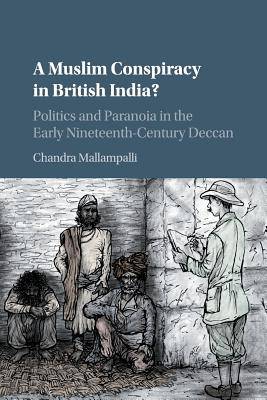
- Afhalen na 1 uur in een winkel met voorraad
- Gratis thuislevering in België vanaf € 30
- Ruim aanbod met 7 miljoen producten
- Afhalen na 1 uur in een winkel met voorraad
- Gratis thuislevering in België vanaf € 30
- Ruim aanbod met 7 miljoen producten
Zoeken
A Muslim Conspiracy in British India?
Politics and Paranoia in the Early Nineteenth-Century Deccan
Chandra Mallampalli
Paperback | Engels
€ 60,95
+ 121 punten
Uitvoering
Omschrijving
As the British prepared for war in Afghanistan in 1839, rumors spread of a Muslim conspiracy based in India's Deccan region. Colonial officials were convinced that itinerant preachers of jihad - whom they labelled 'Wahhabis' - were collaborating with Russian and Persian armies, and inspiring Muslim princes to revolt. Officials detained and interrogated Muslim travelers, conducted weapons inspections at princely forts, surveyed mosques, and ultimately annexed territories of the accused. Using untapped archival materials, Chandra Mallampalli describes how local intrigues, often having little to do with 'religion', manufactured belief in a global conspiracy against British rule. By skillfully narrating stories of the alleged conspirators, he shows how fears of the dreaded 'Wahhabi' sometimes prompted colonial authorities to act upon thin evidence, while also inspiring Muslim plots against princes not of their liking. At stake were not only questions about Muslim loyalty, but also the very ideals of a liberal empire.
Specificaties
Betrokkenen
- Auteur(s):
- Uitgeverij:
Inhoud
- Aantal bladzijden:
- 252
- Taal:
- Engels
Eigenschappen
- Productcode (EAN):
- 9781316647233
- Verschijningsdatum:
- 24/01/2019
- Uitvoering:
- Paperback
- Formaat:
- Trade paperback (VS)
- Afmetingen:
- 152 mm x 229 mm
- Gewicht:
- 344 g

Alleen bij Standaard Boekhandel
+ 121 punten op je klantenkaart van Standaard Boekhandel
Beoordelingen
We publiceren alleen reviews die voldoen aan de voorwaarden voor reviews. Bekijk onze voorwaarden voor reviews.











